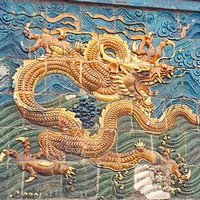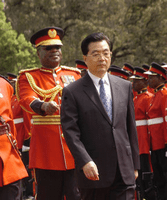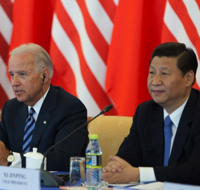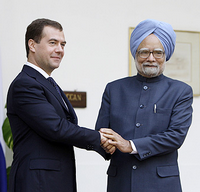
The American political discourse is rife with fear-threat reactions regarding rising China, embodied most saliently in the Obama administration’s strategic pivot to East Asia and GOP presidential candidate Mitt Romney’s repeated promise to hold “currency manipulator” China responsible for its economic sabotage of the U.S. economy. Eagerly cashing in on the hype, last week’s Economist greeted us with the most lurid of covers heralding — yet again! — “the rise of state capitalism.” We are immediately informed by the subtitle that this is “the emerging world’s new model.” Sad to say, this is the state of strategic thinking in the […]




